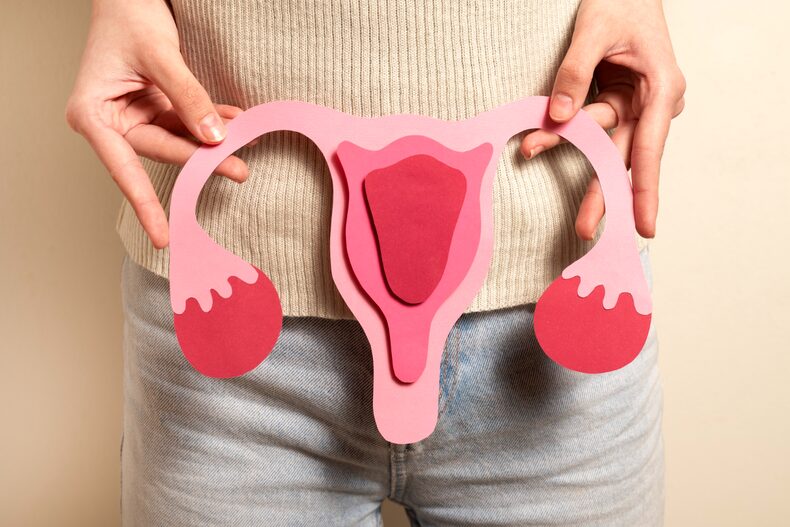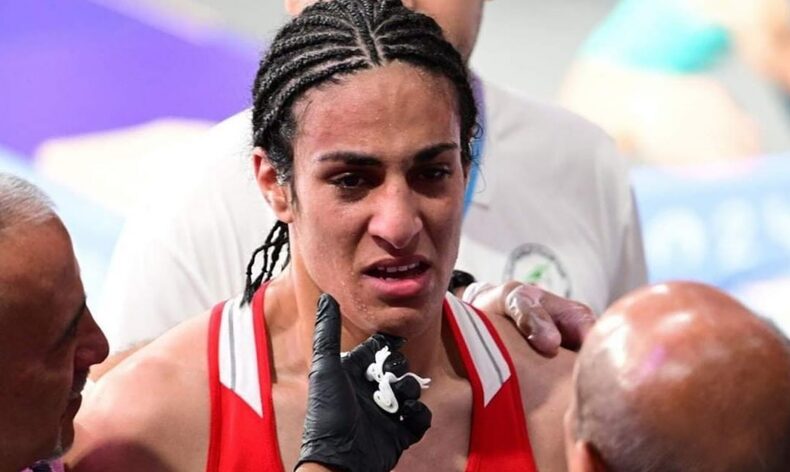The 25-year-old, who will compete in the women’s boxing final this Friday, has been widely questioned about her fitness and gender since her fight with Italian rival Angela Carini.
Imane Khelif She is one of the athletes who starred in one of the great controversies of Paris 2024 Olympic Games .
The Algerian boxer, that this Friday he will seek to win the gold medal in the final of women’s boxing in the category of less than 66 kilos began to attract the world’s attention when she faced Italian Angela Carini and she decided to leave the ring just 46 seconds after starting it. “I have never been hit so hard” ” said Carini at the end of the fight.
The event sparked a series of speculations related to Khelif’s physical condition and gender. He was accused of being transgender, meaning a person whose gender identity does not match the one assigned at birth.
However, in reality, the Algerian is a cisgender woman who suffers from a disease called hyperandrogenism .
What is hyperandrogenism?
Hyperandrogenism is a condition that involves an excess of androgens in a woman’s body. Androgens are a group of male hormones that play essential roles in sexual development, metabolism, body composition, bone and cardiovascular health. The best known of the group is probably testosterone.
In Khelif’s case, for example, tests were carried out which indicate that he has high levels of testosterone.
According to the Bernabéu Institute , Any woman, especially one of childbearing age, can produce a small amount of male hormones or androgens. However, when there is a high concentration, it could be hyperandrogenism.
In women, androgens are produced mainly in two organs, the ovaries and the adrenal glands. Depending on the type of excess androgen and the patient’s symptoms, the origin of hyperandrogenism can be established.
Among the most common causes identified are diseases such as polycystic ovary syndrome (PCOS), congenital adrenal hyperplasia, Cushing’s syndrome or tumors.

Hyperandrogenism manifests itself through various symptoms that vary depending on each case. Acne, alopecia, seborrhea, hirsutism (increased hair growth in areas such as the face, back and abdomen), irregular menstrual cycles, thickening of the voice, increased muscle mass, alopecia and even infertility. are some of the signs that may occur.
Regarding treatments, these depend on the symptoms manifested and the causes. The most recurrent methods are related to the reduction of the impact of excess androgens, some of them being therapy with contraceptives, antiandrogens and progestins. If the cause is adrenal, oral corticosteroids are usually chosen.
The Imane Khelif controversy at the Olympics
On August 1, Imane Khelif and Angela Carini had planned a fight for the round of 16 in the 66 kilo category, without knowing that it would be one of the most publicized moments of the Olympic Games.
Shortly after starting the fight, the Italian received a few blows to the nose, so she headed to the corner of the ring. And although he returned for a brief moment, he ultimately chose to withdraw from the fight. The match had lasted barely 46 seconds.
Khelif thus emerged victorious, qualifying for the quarter-finals. When the judge raised his arm in triumph, Carini began to cry in front of the cameras and did not want to shake his opponent’s hand.
Later, the Italian would say that she had decided to abandon the fight due to the intense pain she felt after Khelif’s blow. “I felt a strong pain in my nose and with the maturity of a boxer I said ‘enough’, because I didn’t want to, I didn’t want to, I couldn’t finish the fight,” the Italian would later say.
The event immediately prompted Khelif to launch massive attacks for her participation in women’s boxing.
Speculation grew when a history of downgrading at the last Women’s Boxing World Cup was revealed: in 2023, Khelif and the Taiwanese Lin Yu-ting who also participated in these Olympic Games, were excluded from the championship for not having “passed the gender eligibility tests”.

The tests were carried out by the International Boxing Association (IBA), which organises the world championship and which did not participate in the last Olympic Games. The results, for their part, indicated that Khelif had high levels of testosterone.
Prior to the IBA tests, The Algerian and the Taiwanese had participated in their discipline during the Tokyo 2020 Olympic Games.
The International Olympic Committee (IOC) had to defend the Algerian, assuring that “there are many women with high levels of testosterone” and that this is “not a case of a transgender athlete.”
“She was born a woman, she was registered as a woman, she grew up as a woman and she competed as a woman.” explained IOC spokesman Mark Adams.
After this and other reactions that the controversy left, Khelif herself chose to break the silence and refer to the wave of comments she has received in recent days that question her gender.
“I send a message to all the people of the world to respect the Olympic principles and the Olympic Charter, and to refrain from harassing athletes, because it has consequences, enormous consequences,” the boxer said.
Then he added that “it can destroy people, it can kill people’s thoughts, minds and spirits. It can divide people. And that’s why I ask you to refrain from any harassment.
Source: Latercera
I am David Jack and I have been working in the news industry for over 10 years. As an experienced journalist, I specialize in covering sports news with a focus on golf. My articles have been published by some of the most respected publications in the world including The New York Times and Sports Illustrated.


